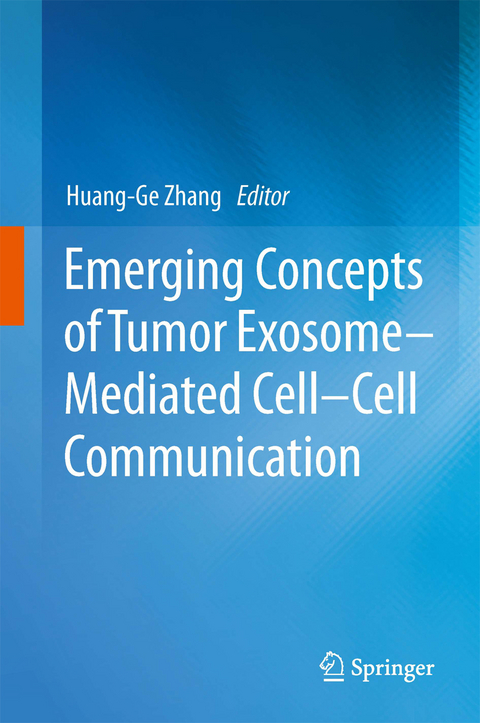
Emerging Concepts of Tumor Exosome–Mediated Cell-Cell Communication
Seiten
2014
|
2013 ed.
Springer-Verlag New York Inc.
978-1-4899-9290-1 (ISBN)
Springer-Verlag New York Inc.
978-1-4899-9290-1 (ISBN)
In multicellular organisms, communication between cells involves secretion of proteins that bind to receptors on neighboring cells. Given the ability of exosomes to export unneeded endogenous molecules from cells, these structures hold great potential as anticancer therapeutic agents.
In multicellular organisms, communication between cells involves secretion of proteins that bind to receptors on neighboring cells. While this has been well documented, another mode of intercellular communication has recently become the subject of increasing interest: the release of exosomes. In cancer, tumor exosomes are involved in various aspects of pathogenesis, including proliferation, immunosuppression, and metastasis. Given the ability of exosomes to export unneeded endogenous molecules from cells, these structures hold great potential as anticancer therapeutic agents. They are also being studied as prognostic markers for cancer.
In multicellular organisms, communication between cells involves secretion of proteins that bind to receptors on neighboring cells. While this has been well documented, another mode of intercellular communication has recently become the subject of increasing interest: the release of exosomes. In cancer, tumor exosomes are involved in various aspects of pathogenesis, including proliferation, immunosuppression, and metastasis. Given the ability of exosomes to export unneeded endogenous molecules from cells, these structures hold great potential as anticancer therapeutic agents. They are also being studied as prognostic markers for cancer.
Preface.- The Cell Biology of Exosomes : Historical and Perspectives.- The role of exosomal shuttle RNA (esRNA) in cell-to-cell.- Exosomal lipids in cell-cell communication.- The Functional Importance Of Tetraspanins In Exosomes.- The effects of exosomes and related vesicles on cancer development, progression, and dissemination.- Circulating Cell-derived Vesicles Mediate Tumor Progression.- Immune modulation of T cells and natural killer cells by tumor-derived exosomes.- The Role Of Tumor Exosomes In Tumorigenicity.- Microenvironmental regulation of metastasis by exosomes.- Microvesicles and their Emerging Role in Cellular Therapies for Organ and Tissue Regeneration.- Index
| Zusatzinfo | VIII, 220 p. |
|---|---|
| Verlagsort | New York |
| Sprache | englisch |
| Maße | 155 x 235 mm |
| Themenwelt | Medizin / Pharmazie ► Medizinische Fachgebiete ► Onkologie |
| Studium ► Querschnittsbereiche ► Infektiologie / Immunologie | |
| Naturwissenschaften ► Biologie ► Biochemie | |
| Naturwissenschaften ► Biologie ► Zellbiologie | |
| ISBN-10 | 1-4899-9290-1 / 1489992901 |
| ISBN-13 | 978-1-4899-9290-1 / 9781489992901 |
| Zustand | Neuware |
| Haben Sie eine Frage zum Produkt? |
Mehr entdecken
aus dem Bereich
aus dem Bereich


